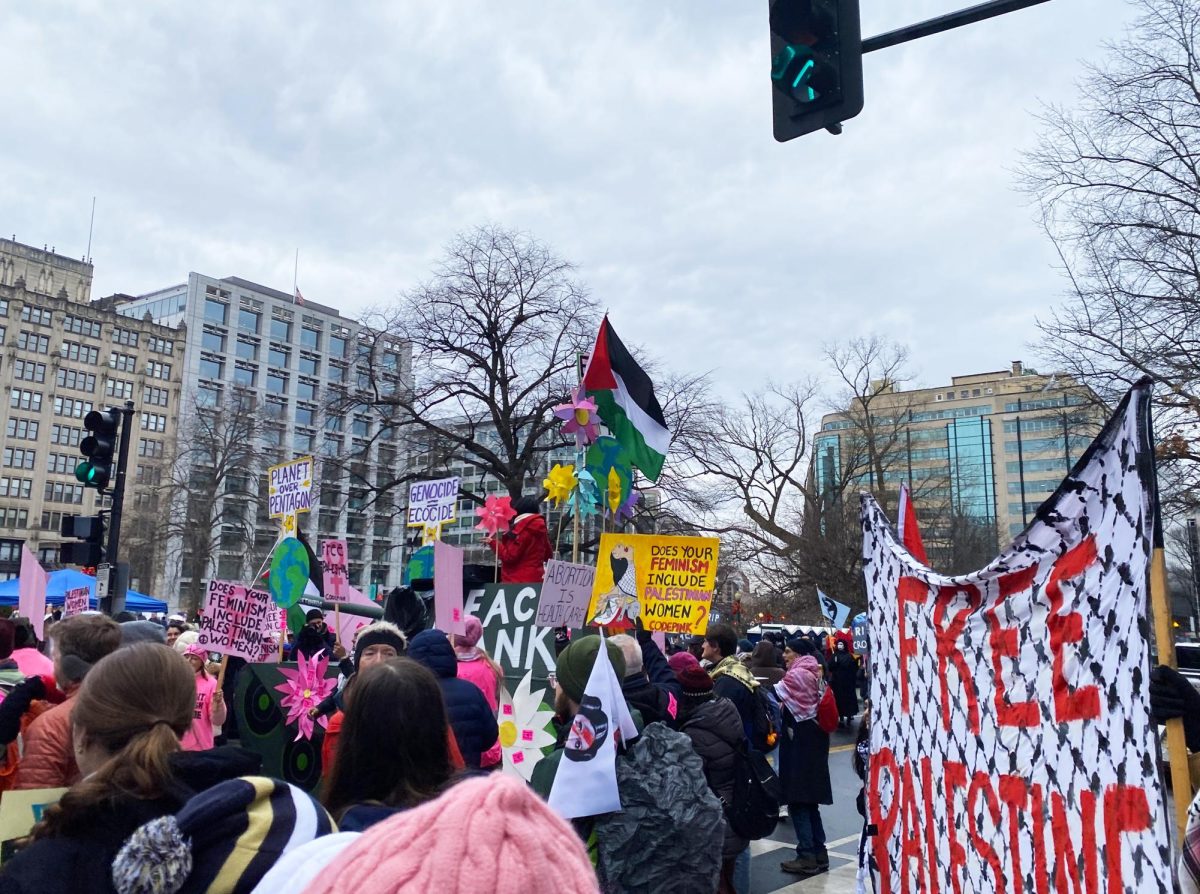On Jan. 15, world leaders announced a ceasefire deal between Israel and Hamas after 15 months of war. For the duration of those 15 months, two Drake University student organizations, the Middle Eastern Alliance for Peace and Prosperity and Hillel, have been working together to support students in the midst of this armed conflict. Now that a ceasefire has been implemented, both organizations and their leaders are cautiously optimistic about the end to the violence.
MEPPA President Rachel Kaiser discussed the challenges of being hopeful after past failed ceasefire deals.
“There’s been talks for a ceasefire for a long time and it kept falling apart,” Kaiser said. “So when hearing about the most recent one, you almost start to feel numb because deals keep falling apart and you have to wonder if it will ever end.”
Vice President of Hillel Macy Gardner echoed some of those same sentiments as she talked about the dread the war created.
“There was generally an atmosphere of wanting it to be over. I don’t think any side other than the governing bodies wants the violence to continue,” Gardner said. “We [Hillel] didn’t want people to keep dying on either side.”
However, Kaiser thinks that activism, especially regarding the ongoing situation in the Middle East, demands perseverance.
“There are concerns, but you have to keep an open mind and keep activism going because there’s always change – good and bad,” Kaiser said “You have to keep working towards anticipating and responding to those changes whether good or bad, and that continual movement keeps you going. And you have to reflect and look back and see what’s changed for the good. That’s what keeps hope going.”
Kaiser explained her initial mixed feelings about the ceasefire in the face of the complicated history of the conflict.
“It was hard to feel a lot. I felt a kind of relief, like a weight was lifted,” Kaiser said. “But it’s not a celebration because of everything leading up to it and knowing that even if this aspect of the conflict is ended, the conflict itself is still ongoing.”
Gardner acknowledged the benefits of the ceasefire despite its temporary status.
“It’s good that not as many people are dying and hostages from both sides are being released. But it’s under very contentious circumstances; it’s frustrating for everybody,” Gardner said.“We don’t want this violence to continue, and neither do the citizens of either country or of any neighboring countries.”
Both Kaiser and Gardner discussed prospects for extending the ceasefire. A permanent ceasefire hasn’t been established. Gardner detailed her hope for renewal amidst political tension.
“I certainly hope [it will last]. I personally think Netanyahu’s made his point,” Gardner said. “Generally, it’s so complicated because there’s so much tension on both sides. But I hope it’s renewed and becomes permanent.”
Kaiser agreed, focusing on the hostage exchange and protests that could incentivize the continuation of the ceasefire deal.
“I have hope that it will last, especially since we have had hostages released safely, so hopefully that is an incentive for the Israeli government,” Kaiser said. “I hope that protests will add pressure to keep the ceasefire, but the practicality and wisdom of past experiences means we need to be prepared that it might not continue.”
The two leaders also discussed what needed to be done if the ceasefire was extended to recover from the armed conflict. Gardner focused on aid efforts and mutual agreement on next steps.
“There needs to be aid efforts on both sides,” Gardner said. “Israel needs to send in aid immediately because a lot of damage has been done on both accounts, and I think having aid go both ways and having some sort of mediating organization run that so that there isn’t as much tension.”
The current ceasefire was mediated by representatives from the United States, Egypt, and Qatar, as well as officials from the Israeli government and Hamas’ leadership. Future mediation efforts are still being determined.
Kaiser listed the extensive work that needs to be done to repair the Gaza Strip.
“There are a lot of steps — the main one is that Gaza has been decimated and it needs a ton of foreign aid and support to even think about rebuilding,” Kaiser said. “We have to clear the rubble – which is estimated to take decades. We have to get rid of unexploded bombs, which still pose a threat to civilians. You have to get rid of hazardous materials from bombs, asbestos, lead, leveled buildings. You have to rebuild civilian infrastructure in areas like water and health. You have to stop infectious diseases. It’s a long list.”
Then Kaiser turned her focus towards the people living in the most damaged areas.
“We also need mental health support,” Kaiser added. “We need more people to support mental health because there’s so much trauma from people who have lost limbs or family members who need specialized psychological help to be able to continue something of a normal life.”
Both leaders highlighted the importance of continuing activism and collaboration, both on campus and across the globe.
“The ceasefire is a step in the right direction, but there’s a lot more that needs to be done,” Kaiser said. “You can’t consider this over until it is safe in Gaza and in the West Bank. That work has to continue.”
Gardner stressed the relationship between MEPPA and Hillel as a path for progress.
“MEPPA and Hillel are still working together and we want this to continue after we [Gardner and Kaiser] graduate,” Gardner said. “We hope that we can continue to build that foundation and the big hope and dream is to set the example for other schools that we are one and we are together and we are all people.”







